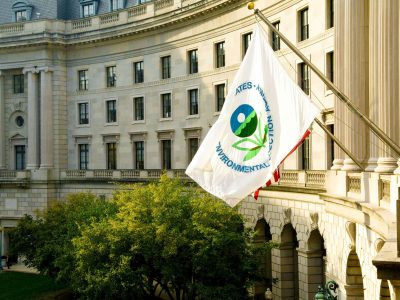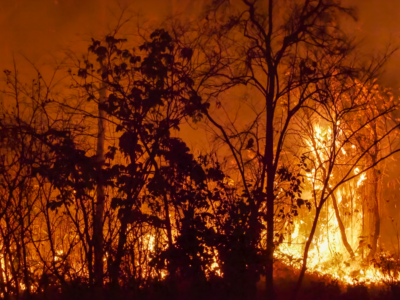Litigation
Don’t Panic About the Supreme Court’s Ruling on Universal Injunctions
The Court left open a variety of workarounds. At least for the now.
In a case involving birthright citizenship, Trump v. CASA, the Court limited the power of judges to issue universal injunctions that protect everyone subject to an illegal government policy. President Trump hailed this outcome as a great victory, and it does provide more maneuvering room for him and future presidents. But the Court’s reasoning does not implicate most judicial rulings about the legality of regulations. The Court also left open some important questions that will be furiously litigated in the lower courts or the Supreme Court itself.
CONTINUE READINGThe “Big Beautiful Bill” is One Damn Dirty Deal
The Drain is a weekly roundup of environmental and climate news from Legal Planet.
My family is about to take a road trip. Out our window we will see beaches, lakes, and a whole lot of public land that would be eligible to be sold off to developers and corporations under the recent version of a budget bill that Republicans want to rush through this week. Welcome to The …
Continue reading “The “Big Beautiful Bill” is One Damn Dirty Deal”
CONTINUE READINGClimate Lawsuits Now a Matter of Life and Death
The Drain is a weekly roundup of environmental and climate news from Legal Planet.
What a week for watchers of climate litigation. Big new filings, claims of death and destruction, a landmark ruling, and a juicy hearing all in the span of 36 hours. First, there was what the New York Times described as “the first wrongful death lawsuit” to be brought against oil and gas companies over claims …
Continue reading “Climate Lawsuits Now a Matter of Life and Death”
CONTINUE READINGEnvironmental Rollbacks: Will the Trump Administration Overplay Its Hand?
The odds are good that Trump agencies will go too far out on a limb.
The Trump Administration’s tendency to rely on bold legal arguments rather than detailed technical ones is a disadvantage in court. Courts defer to agencies on factual matters, especially those that involve technical expertise. Now that Chevron has been overruled, however, legal arguments by agencies don’t get the same deference. Thus, the chances of a judicial reversal are higher when the agency relies on purely legal grounds.
CONTINUE READINGWhat Happened to EPA Enforcement?
Enforcement efforts peaked long ago and have been in long-term decline. Trump will accelerate that.
There has been a long-term decline in EPA enforcement since the late Bush Administration. The numbers raise three questions: What’s behind the long-term trend? Why has pollution generally continued to decline despite weaker enforcement? And how bad will things be under Trump II? As to the third question, Trump has already made it clear that we can expect environmental enforcement to crash and burn in the next four years.
CONTINUE READINGIs Brazil Ready for COP30? No One Is Ready for COP30
The Drain is a weekly roundup of climate and environmental news from Legal Planet.
It’s officially less than 6 months until COP30 — when tens of thousands of people will descend on the Brazilian city of Belém for the annual UN climate conference — and no one is ready. For one thing, Belém is an impoverished city of 2.5 million that can’t build enough hotels for the 50,000 expected delegates …
Continue reading “Is Brazil Ready for COP30? No One Is Ready for COP30”
CONTINUE READINGChevron’s Losing Play to Avoid Big Damages
Chevron sponsored Super Bowl LIX events and science classes for New Orleans children just weeks before a Louisiana jury ordered it to pay $745 million in damages.
In February and March, Chevron generated headlines for its charity at the Super Bowl in Louisiana. This month, the oil company made very different headlines for being ordered to pay $745 million for damage to the Louisiana coast after a jury verdict. One of these stories shows the company as a town hero in a …
Continue reading “Chevron’s Losing Play to Avoid Big Damages”
CONTINUE READINGWildfire Liability in California: A Primer
California has a unique approach to lawsuits against utilities for causing fires.
Like other states, California allows wildfire lawsuits against utilities based on negligence. When a plaintiff can prove that the utility was negligent – in other words, failed to exercise reasonable care – plaintiffs can recover for environmental damage, reforestation costs, and loss of profits. But California also allows recovery even when a utility did nothing wrong, under a theory called inverse condemnation. The PG&E bankruptcy made it clear that no-fault utility liability could threaten the financial health of the power system. The legislature created a new fund to deal with the problem.
CONTINUE READINGThe Downsides of Ping Pong Governance
Judicial review, by moderating policy swings, may be important to facilitating long-term investment
I’ve written about debates over permitting reform and other versions of regulatory streamlining to support the development of infrastructure that we need to address climate change. Another view, well articulated by Nicholas Bagley at University of Michigan, is that the problem is more fundamental: Excessive focus on governmental procedures and process, reinforced by searching judicial …
Continue reading “The Downsides of Ping Pong Governance”
CONTINUE READINGThe Top-Ten Lower Court Decisions on Environmental Law
Don’t let the headlines deceive you. It’s not just the Supreme Court that shapes environmental law.
The Supreme Court tends to get all the attention, but for every Supreme Court opinion on environmental law there are probably fifty opinions in the lower federal courts. Collectively, the lower courts have done fat least as much to shape the law than the Supreme Court’s occasional interventions.
CONTINUE READING










